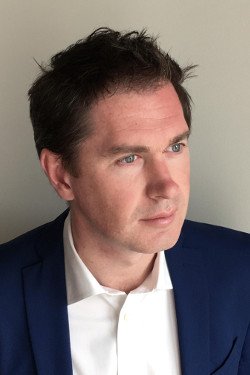Andrew Goodwin
2018 United Kingdom Award Winner — Faculty

Current Position:
Professor of Materials Chemistry
Institution:
University of Oxford
Discipline:
Inorganic & Solid-State Chemistry

Current Position:
Professor of Materials Chemistry
Institution:
University of Oxford
Discipline:
Inorganic & Solid-State Chemistry
Recognized for: Groundbreaking theoretical and applied studies of disorder and flexibility in materials.
Areas of Research Interest and Expertise: Materials chemistry, Strongly correlated disorder, Framework materials, Diffuse scattering
Biography:
BSc, University of Sydney
PhD in Inorganic Chemistry, University of Sydney (Advisor: Prof. Cameron Kepert)
PhD in Mineral Physics, University of Cambridge (Advisor: Prof. Martin T. Dove)
Junior Research Fellow, Trinity College, Cambridge
Prof. Goodwin is considered a world leader in the study of the dual roles of mechanical flexibility and structural disorder in the chemistry and physics of functional materials. Disordered materials are materials in which the perfect crystallinity (order) of the atomic, molecular, or magnetic scaffold is disrupted in some way and include semiconductors and glass. One of the trickiest aspects of the field is distinguishing different types of disorder from randomness. Goodwin’s laboratory utilizes advanced diffraction and modelling techniques to probe disordered materials and subsequently produce new, tailored materials that display unique properties.
Most materials will expand upon heating and shrink when compressed; however, Goodwin has discovered that by careful control of the structure of a substance, the opposite can occur—materials will shrink upon heating (negative thermal expansion) and expand when compressed (negative linear compressibility). These counterintuitive processes can be exploited in the design of heat-resistant materials, advanced pressure sensors, artificial muscles, and even body armor. Additionally, Goodwin has played a key role in the structural analysis of amorphous materials using total scattering methods, which, in the case of amorphous calcium carbonate (CaCO3), the key structural component in bones and shell, helped explain the ability of organisms to nucleate different crystalline structures from the same biomineral precursor.
“Materials design usually focuses on arranging atoms in patterns that repeat in various different ways, but our research asks: what new properties are possible if these atomic patterns never repeat? This fundamental question has very real-world ramifications for the design of next-generation materials — from batteries to pharmaceuticals. I am thrilled to receive this Blavatnik Award in Chemistry, as I am grateful to the many talented students, postdoctoral researchers and collaborators with whom I have worked.”
Key Publications:
Other Honors:
| 2017 | Corday-Morgan Prize, Royal Society of Chemistry |
| 2016 | Fellow, Royal Society of Chemistry |
| 2013 | Marlow Medal, Royal Society of Chemistry |
| 2010 | Harrison-Meldola Medal, Royal Society of Chemistry |
| 2009 | Fellow, St Anne’s College, Oxford |
| 2008 | EPDIC Award for Young Scientists, International Union of Crystallography |
| 2006 | Thesis Prize in Physical Crystallography, Institute of Physics / British Crystallographic Association |
| 2004 | Fellow, Trinity College, Cambridge |
In the Media:
Science Daily - Unusual material expands dramatically under pressure
WIRED - Shapeshifting crystal expands under pressure
Phys.org - Hidden order uncovered in spin liquid Gd3Ga5O12
Chemistry World - Defective by design